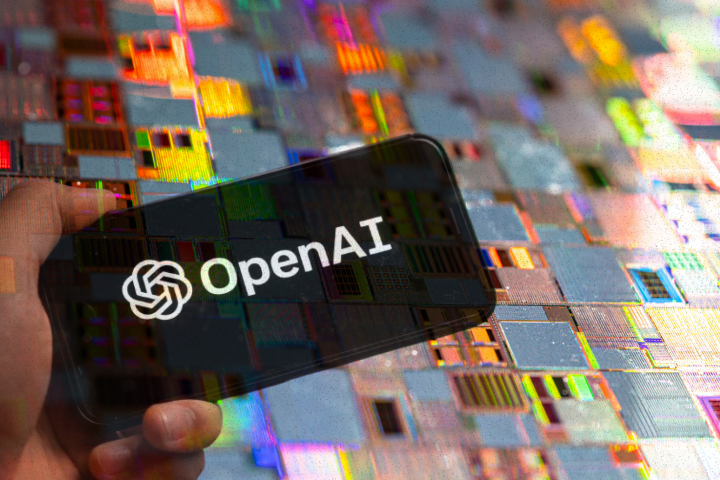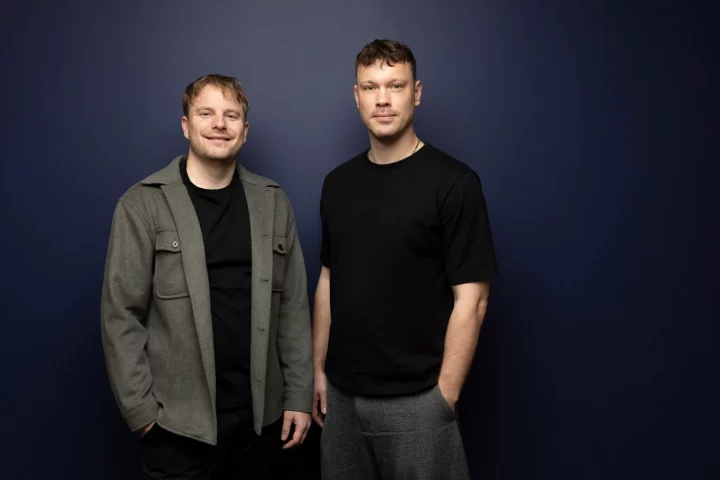OpenAI hits a $500 billion valuation, overtaking SpaceX as the world’s most valuable startup. Feedzai lands a €237 million ECB contract to build fraud AI for the digital euro.
Electronic Arts is being bought for $55 billion by Saudi Arabia’s PIF, Silver Lake, and Jared Kushner’s Affinity Partners, ushering in a new era where gaming IP fuels movies, TV, and global entertainment empires.
And eBay launches a £3 million UK programme giving 10,000 small businesses free access to ChatGPT Enterprise.
Meanwhile, Lupa raises $20 million to launch the world’s first Veterinary AI Lab. Creator Fund closes $41 million to back PhD founders across Europe.
China sidelines Nokia and Ericsson as it purges Western tech from critical infrastructure. And Perplexity AI goes global with its free Comet browser.
All that and more. Let’s dive in…
DRIVING THE CONVERSATION TODAY
OpenAI becomes world’s most valuable startup at $500 billion
OpenAI has surged to a $500 billion valuation after employees and former staff sold $6.6 billion in shares to investors including SoftBank, Thrive Capital, Dragoneer, Abu Dhabi’s MGX, and T. Rowe Price.
The valuation leap, from $300 billion earlier this year, reflects explosive growth: $4.3 billion in revenue in H1 2025, already 16 percent above all of 2024.
With $12 billion in recurring revenue and projections to exceed $20 billion by year-end, OpenAI now surpasses SpaceX ($400 billion) as the world’s most valuable private company.
Nvidia’s pledged $100 billion investment is tied to OpenAI deploying 10 gigawatts of AI compute on its chips.
eBay gives 10,000 UK SMBs free ChatGPT Enterprise
eBay has launched a £3 million “AI Activate” programme in partnership with OpenAI, offering 10,000 UK small businesses free access to ChatGPT Enterprise, custom AI tools, and tailored training through 2026.
Participants get 12 months of AI licences, sessions on financial analysis, marketing, and research, plus ongoing support. With SMBs employing 60 percent of UK workers, eBay aims to democratize AI access.
This marks the first time an online marketplace provides OpenAI tools at no cost to sellers, building on AI features that have already helped 10 million sellers create 300 million listings.
EA sold in $55 billion leveraged buyout
Electronic Arts has agreed to a record $55 billion leveraged buyout by Saudi Arabia’s Public Investment Fund, Silver Lake, and Jared Kushner’s Affinity Partners.
The deal hands the consortium blockbuster franchises like Battlefield, Apex Legends, and The Sims, as gaming pivots from consoles to cross-media storytelling.
With hits like Sony’s The Last of Us and Nintendo’s Super Mario movie proving the value of IP, EA is already developing a Sims film with MGM.
For Saudi Arabia, which has stakes in Nintendo, Take-Two, and is building cinemas and anime studios, the acquisition is part of a broader push to dominate global digital entertainment.
ECB picks Feedzai for digital euro fraud AI
The European Central Bank has awarded Portuguese AI startup Feedzai a contract worth up to €237.3 million ($278.7 million) to develop fraud-prevention technology for its digital euro.
Over four years, Feedzai and subcontractor PwC will build an AI model that scores transactions for risk by analyzing user behavior and payment patterns. The system will help providers decide whether to approve transfers.
This is part of the ECB’s broader push to reduce reliance on Visa, Mastercard, and U.S. stablecoins. Legislative approval is pending, with a 2029 launch targeted.
FUNDING FLASH
Lupa raises $20 million to launch Veterinary AI Lab
London startup Lupa has secured $20 million in Series A funding, led by Singular, to modernize veterinary care.
Founded in 2023 by ex-Meta engineer Raul Lozano Martin and others, Lupa replaces fragmented clinic software with a unified platform for records, scheduling, and client communication.
Its new Veterinary AI Lab, staffed by talent from DeepMind, Meta AI, and Palantir, will build clinically validated AI tools for every stage of pet care.
The platform saves vets an hour a day and gives pet owners a mobile health passport. Total funding now stands at $25 million, following 50x revenue growth.
Creator Fund closes $41 million European institutional fund
Creator Fund, the London-based student VC, has raised $41 million for its first European institutional fund, doubling its 2022 debut and making it the world’s largest student venture firm.
Backed by Germany’s Equation Capital, Denmark’s EIFO, and 60-plus LPs, the fund supports PhD founders across 24 universities in eight countries.
Since 2019, it has invested in 55 startups, secured two exits, including Loci to Epic Games, and helped portfolio firms raise $250 million.
New bets include Ovo Labs (fertility science) and Sphotonix (ultra-secure glass data storage). The firm is expanding beyond Oxford and Cambridge to overlooked universities, turning European research into global deep tech.
Athernal Bio launches with £3.5 million for cancer prevention
Cambridge biotech Athernal Bio has officially launched with £3.5 million in seed funding from Delin Ventures to develop immunotherapies for clonal haematopoiesis (CH), a precursor to blood cancers like AML.
Founded by Nirupa Desai and Ieuan Walker, the company aims to shift oncology from treatment to proactive prevention. Initial work will focus on patients with rare inherited blood disorders who face aggressive CH. The goal is to deliver the first targeted early interventions in this underserved field.
STILL DEVELOPING
Acer warns of CPU shortage, soaring memory costs
Acer chairman Chen Junsheng has warned that tight CPU supplies from Intel and AMD, plus surging DRAM prices driven by AI server demand, threaten to disrupt the PC industry just as seasonal sales pick up.
While Acer’s August revenue hit NT$218 billion (€6.3 billion), with gaming sales up 24.8 percent, Chen cautioned that margin pressure could persist into 2026. Non-PC businesses now make up one-third of revenue, but component shortages remain a key risk.
MediaTek’s ASIC ambitions stall
MediaTek is losing ground in its push to become a custom AI chip designer. Meta’s “Arke” 2nm inference ASIC is now leaning toward Broadcom and Marvell, while Google’s ASIC project faces delays, with mass production unlikely before late 2026.
Analysts warn these setbacks could derail MediaTek’s 2026–2027 growth targets, turning its once-promising ASIC strategy into a high-stakes gamble amid fierce competition from U.S. hyperscaler-aligned firms.
Amazon embeds Alexa+ across home ecosystem
Amazon is rolling out Alexa+, a subscription-based AI assistant, across Echo, Fire TV, and Ring devices. Free for Prime members or $19.99 per month, it promises natural conversations, memory, and multi-step tasks.
Ring’s new “Search Party” feature scans neighborhood cameras for missing pets. But the bigger play is cloud infrastructure: every query drives real-time inference on AWS, powered by Nvidia Blackwell, Trainium, and Inferentia chips, turning smart homes into endpoints that feed Amazon’s AI and cloud dominance.
EQUALLY IMPORTANT
China sidelines Nokia, Ericsson in 5G purge
China is systematically sidelining Nokia and Ericsson, as President Xi accelerates the removal of Western tech from critical infrastructure.
State-backed buyers subject foreign bids to opaque, months-long security reviews by the Cyberspace Administration of China, giving domestic firms a clear edge.
Since 2022, Nokia and Ericsson’s combined market share in China has collapsed from 12 percent to 4 percent.
The asymmetry is stark: while China restricts Western vendors, only 10 of 27 EU states have curbed Huawei and ZTE, leaving Chinese firms with 30 to 35 percent of Europe’s 5G market. Germany plans to phase out Chinese kit only by 2029.
UK urges pension funds to back deep tech
Science Minister Lord Vallance has called on UK pension funds to invest more in homegrown science and tech firms in AI, quantum, and life sciences. Despite a strong research base, many companies remain underfunded.
The government unveiled an Innovation Clusters Map highlighting hubs like North West England (life sciences) and Glasgow (satellites). Citing Arm as a success story, Vallance said private capital can generate returns while keeping value and jobs in the UK.
Perplexity AI launches Comet browser globally
Perplexity AI has made its Comet browser available worldwide for free. Originally a $200 per month Max subscriber feature, Comet acts as a personal AI assistant that searches, organizes tabs, drafts emails, and shops online.
A paid Comet Plus tier offers content from CNN, The Washington Post, and Le Monde. Mobile and Background Assistant features are coming. With millions on its waitlist, Perplexity aims to challenge Google, OpenAI, and Anthropic in the AI browser race.
WORTH NOTING
Musk urges Netflix boycott over trans character
Elon Musk called on X users to “Cancel Netflix for the health of your kids,” citing the animated show Dead End: Paranormal Park and its transgender character.
Netflix shares fell 4 percent, but analysts say the impact is likely minimal given its 301.6 million subscribers and $490 billion market cap. Such boycotts are often short-lived and sometimes boost viewership.
Meta tests “communities” on Threads
Meta is testing a “communities” feature on Threads, which now has 400 million users. Over 100 topic-based spaces, on basketball, books, tech, let users connect, with “leading voices” earning blue badges.
Posts are ranked by relevance, likes trigger custom emojis, and community activity shapes main feed recommendations. The move mirrors X Communities, which saw a 495 percent user activity jump, and aims to make Threads more organized and sticky.












